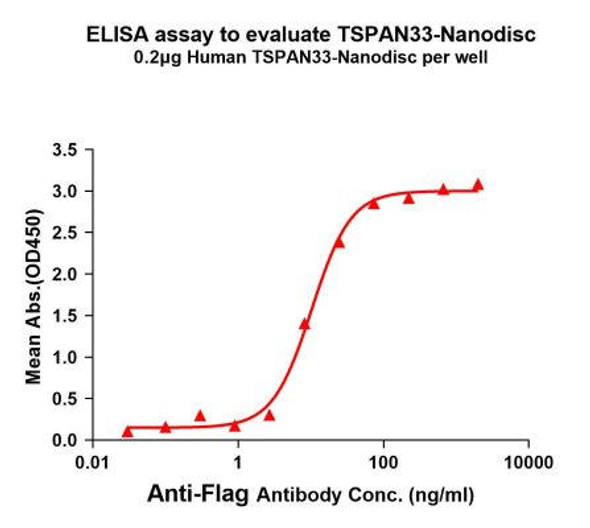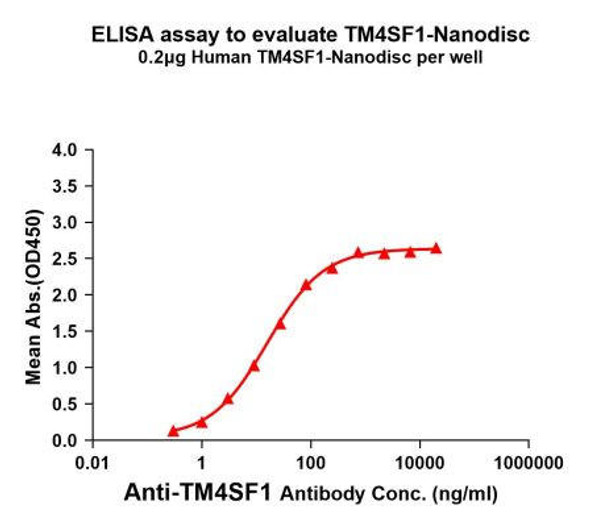Human ADGRE1 Full-Length Bioactive Membrane Protein (HDFP036)
- SKU:
- HDFP036
- Product Type:
- Recombinant Protein
- Protein Type:
- Full-Length Bioactive Membrane Protein
- Species:
- Human
- Uniprot:
- Q14246
Frequently bought together:
Description
system_update_altDatasheet
| Product name | Human ADGRE1 full length protein-synthetic nanodisc |
| Size: | 10ug |
| Product SKU: | HDFP036 |
| Product Category | Full Length Transmembrane Proteins |
| Target: | ADGRE1 |
| Uniprot: | Q14246 |
| Description: | Human ADGRE1 full length protein-synthetic nanodisc |
| Molecular Weight: | The human full length ADGRE1 protein has a MW of 97.5 kDa |
| Protein Family: | Druggable Genome, Transmembrane |
| Protein Pathways: | |
| Storage & Shipping: | Store at -20°C to -80°C for 12 months in lyophilized form. After reconstitution, if not intended for use within a month, aliquot and store at -80°C (Avoid repeated freezing and thawing). Lyophilized proteins are shipped at ambient temperature. |
| Synonyms: | EMR1; TM7LN3 |
| Expression System: | HEK293 |
| Formulation: | Lyophilized from nanodisc solubilization buffer (20 mM Tris-HCl, 150 mM NaCl, pH 8.0). Normally 5% - 8% trehalose is added as protectants before lyophilization. Please see Certificate of Analysis for specific instructions. |
| Background: | This gene encodes apolipoprotein A-I, which is the major protein component of high density lipoprotein (HDL) in plasma. The encoded preproprotein is proteolytically processed to generate the mature protein, which promotes cholesterol efflux from tissues to the liver for excretion, and is a cofactor for lecithin cholesterolacyltransferase (LCAT), an enzyme responsible for the formation of most plasma cholesteryl esters. This gene is closely linked with two other apolipoprotein genes on chromosome 11. Defects in this gene are associated with HDL deficiencies, including Tangier disease, and with systemic non-neuropathic amyloidosis. Alternative splicing results in multiple transcript variants, at least one of which encodes a preproprotein. [provided by RefSeq, Dec 2015] |
| Delivery: | 3-4 weeks |
| Usage | Research use only |







